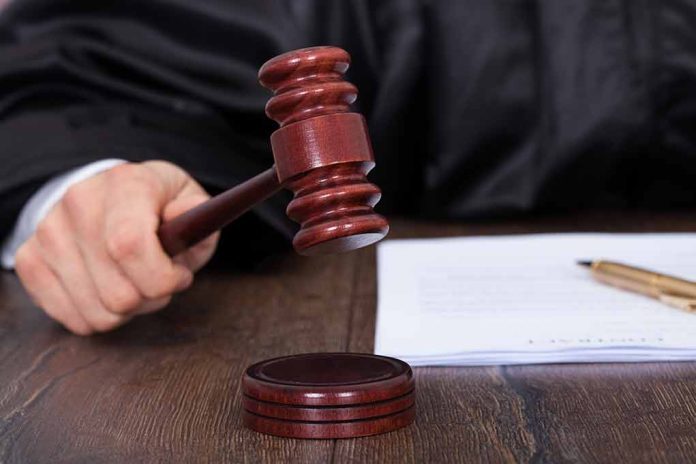
President Donald Trump must face a defamation lawsuit from the wrongfully convicted “Central Park Five” after a federal judge rejected his motion to dismiss the case, ruling that his statements during a 2024 debate with Kamala Harris could be proven false.
Key Takeaways
- U.S. District Judge Wendy Beetlestone ruled that Trump’s defamation lawsuit from the “Exonerated Five” can proceed, rejecting his dismissal request.
- The lawsuit stems from statements Trump made during a 2024 presidential debate where he falsely claimed the men admitted guilt and “killed a person.”
- The five men were wrongfully convicted of a 1989 Central Park jogger rape, spent years in prison, and were fully exonerated in 2002 when another man confessed.
- Trump’s legal team argues the case represents an attack on free speech and should be blocked under Pennsylvania’s anti-SLAPP law.
- This case continues Trump’s decades-long involvement with the case, including his 1989 newspaper ad calling for the death penalty.
Judge Allows Defamation Case to Move Forward
A federal judge has denied President Donald Trump’s request to dismiss a defamation lawsuit filed by the five men wrongfully convicted in the 1989 Central Park jogger case. U.S. District Judge Wendy Beetlestone ruled that Trump’s statements during a presidential debate with Kamala Harris could be “objectively determined” to be false, allowing the lawsuit to proceed. The decision represents a significant legal setback for Trump, who had sought to end the case before it could advance to further proceedings.
The lawsuit centers on comments Trump made during the September 2024 presidential debate where he allegedly claimed the men had pleaded guilty and “killed a person.” These statements form the basis of the defamation claims, as the five men were fully exonerated in 2002 after another man confessed to the crime and DNA evidence confirmed his guilt. Judge Beetlestone permitted the plaintiffs to amend their complaint to continue pursuing their case against the former president.
President Trump must face Central Park Five defamation suit, judge rules https://t.co/f3BiJTawpM
— The Hill (@thehill) April 10, 2025
A Case Decades in the Making
The five men – Yusef Salaam, Raymond Santana, Kevin Richardson, Korey Wise, and Antwan McCray – were teenagers when they were arrested and wrongfully convicted for the brutal rape of a jogger in Central Park in 1989. Despite their exoneration in 2002, Trump has repeatedly refused to acknowledge their innocence. During the 2024 debate that sparked this lawsuit, former Vice President Harris referenced Trump’s involvement in the case dating back to the original incident.
Trump’s response during that debate now forms the core of the defamation lawsuit. The president claimed the men had “admitted” and “pleaded guilty” to charges, further stating they “badly hurt a person, killed a person ultimately.” These statements directly contradict the official record, as the jogger survived the attack, and the five men were completely exonerated when Matias Reyes confessed to committing the crime alone, with DNA evidence supporting his confession.
Legal Arguments from Both Sides
Trump’s legal team has vigorously fought against the lawsuit, arguing it represents an attack on constitutionally protected speech and should be dismissed under Pennsylvania’s anti-SLAPP (Strategic Lawsuit Against Public Participation) statute.
The plaintiffs, now commonly referred to as the “Exonerated Five,” have each pursued various civic and political roles since their release. Yusef Salaam was elected to the New York City Council in 2023, representing a district in Harlem. Their lawsuit accuses Trump of both defamation and portraying them in a false light, with Judge Beetlestone allowing both claims to proceed. The case will now continue through the legal process, potentially leading to discovery and depositions.
Sources:
Trump Loses Bid to End ‘Central Park Five’ Defamation Case
President Trump loses bid to end Central Park Five defamation case







